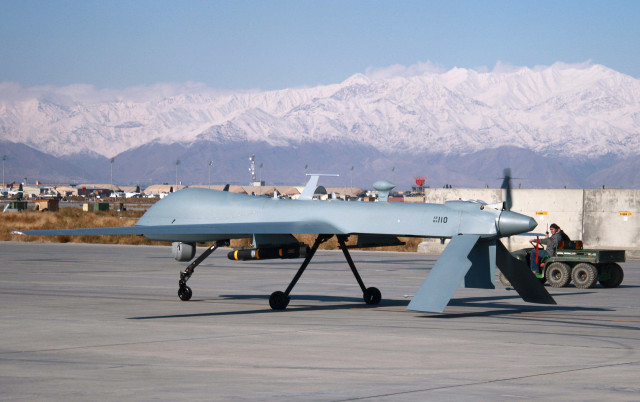UN urged to set up panel on ethics of robot weapons
Christof Heyns says such systems raise serious concerns that have been ignored by human rights actors till yet.

In a report to the UN General Assembly human rights committee, Christof Heyns said such systems raised "serious concerns that have been almost entirely unexamined by human rights or humanitarian actors."
"The international community urgently needs to address the legal, political, ethical and moral implications of the development of lethal robotic technologies," said Heyns, UN special rapporteur on extrajudicial executions.
It was the second time this year UN experts tackled the issue. In June, Heyns' predecessor, Philip Alston, called for a halt to CIA-directed drone strikes on al Qaeda and Taliban suspects in Afghanistan and Pakistan, saying killings ordered far from the battlefield could lead to a "Playstation" mentality.
The CIA contested Alston's findings, saying, without confirming it carried out the strikes, that its operations "unfold within a framework of law and close government oversight."
But Heyns, a South African law professor, said there was a need to discuss responsibility for civilian casualties, how to ensure the use of robots complied with humanitarian law, and standards for developing the technology involved.
Saying the UN should take a lead, he urged Secretary-General Ban Ki-moon to convene a group of national representatives, human rights experts, philosophers, scientists and developers to promote a debate on the legal and moral implications of robotic weapons.
The group should discuss the challenges the weapons posed and how the technologies could be used "to promote more effective compliance with international human rights and humanitarian law," he said.
Among the issues it should study was "the fundamental question of whether lethal force should ever be permitted to be fully automated," he added.
Heyns' statement to the UN committee did not name any country, weapon system or target in its discussion of robotic technologies.
However, the CIA has stepped up drone strikes in Pakistan, targeting high-level al Qaeda and Taliban figures as well as largely unknown foot soldiers.
But Alston's June report said the United States was just one of 40 countries with drone technology. He named Britain, China, France, India, Iran, Israel, Russia and Turkey as also having or seeking the capacity to fire missiles from drones.



















COMMENTS
Comments are moderated and generally will be posted if they are on-topic and not abusive.
For more information, please see our Comments FAQ